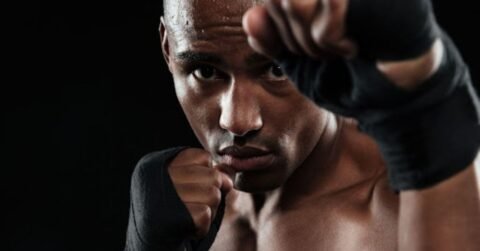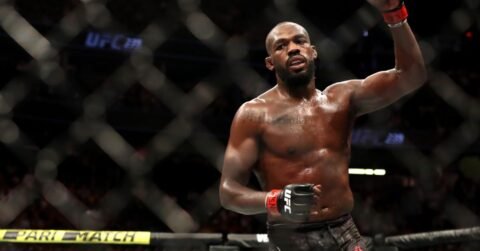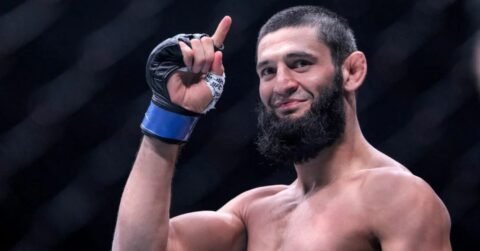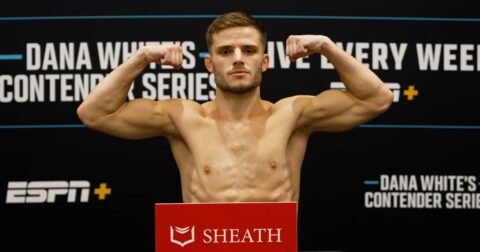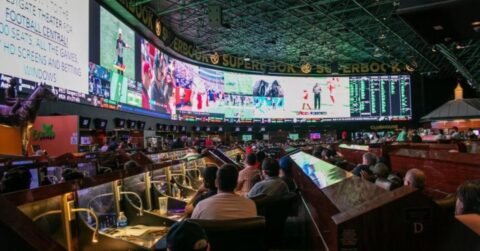Tell us about your first ever fight (in or out of the cage)?
My first real ‘adrenaline’ rush fights that I can remember, apart from little schoolyard fights as a kid, were on the rugby field, probably around under 14s, against local side Cwmbran which is quite funny because I’ve got a lot of friends now in Cwmbran. It was a proper 30-man brawl, I remember it being a bit feisty all game. There was about 10 minutes left and ‘Boom’! It all went up in the air! That was my first real experience in the sense that you get that adrenaline rush, that ‘fight or flight’ sort of thing. Obviously, I’d been training all my life to spar and stuff like that but when it all kicks off for real and you’re fighting what, in essence, is a street fight, it’s a totally different situation. For an under 14s team, we had a couple of big boys and they (the opposing team) had a couple of big boys, so it was getting quite tasty.
My dad (Richard Shore, Jack’s head coach) was actually the physio for our team, the guy with the ‘magic sponge’. Him and a couple of the coaches, and obviously the other team’s coaches, all ran on and tried to separate us, sort of broke it up. They weren’t too happy. We had a four-week ban off the WRU (Welsh Rugby Union) for that and a couple of the boys had individual bans as well. They were quite serious!
But while our coaches didn’t condone fighting at the time, the advice was, if everyone is gonna fight you can’t just leave your mates having their head kicked in three on one. You’ve gotta get in there and back them up.
After that, it became quite a common thing (because) our team had a couple of hotheads. Once we had that first experience of it kicking off big time we developed a bit of a pattern for the rest of that season. It wasn’t so much ‘one on one’, more of an all-in, crack whoever you can see and try not to get cracked when you’re not looking!
When did the prospect of becoming an MMA fighter start to dawn? Were you always athletic as a kid?
You ask anyone, I was never physically gifted as a kid. I was always a quiet, quick kid. Quite introverted, a little bit ‘socially awkward’ probably. I wasn’t much of a talker, didn’t like being in front of crowds, didn’t like meeting new people. But, as a 13/14-year-old, I always trained with the older boys. I was always in the gym with your Jack Marshman’s (UFC Middleweight), your Kris Edwards’ (Cage Warriors Featherweight), Martin McDonough (Cage Warriors Lightweight) – all these boys who were good fighters but had a right reputation around Abertillery for being scrappers and tough men! Looking back, that probably brought me out of my shell and gave me a bit of confidence, just in life and in general.
I was always a little chubby kid but my old man will always tell you the same thing, I was always really fit for a fat kid! I had a good engine on me, I was training five nights a week and doing extra sessions if I could. I was never a fat kid who’d do a round and then was blowing it out of his arse, I was always there for the duration. At around 14/15, I was still carrying the weight but I started to submit the men in the class. You’d have your white belt and blue belt adults and I’d be dominating them for a round or pulling off submissions or we’d be sparring on the feet and I’d dominate them on the feet. That’s when I started to think that I was half-decent at this.
I wasn’t a bad rugby player but other than that I wasn’t the most gifted at other sports. This was the one sport that I picked up quick. We’d drill a new technique or someone else would come in for a seminar and next thing you know we’d be rolling and I’d be pulling off the same technique. So, despite not having the physical attributes, mentally I always had a good eye for the sport, a good fight IQ. That’s when it started to sync home that if I can lose a bit of weight, I had a good shot of doing well.
I was winning BJJ competitions against boys who were much physically bigger than me despite obviously carrying the bad weight. But as you do, I shot up a little bit (in height), and dropped a bit of the weight naturally. To be honest, the majority of the weight came off when I started amateur boxing for two years from around 17 to 19. The training in an amateur boxing gym is old school; constant fitness, skipping and circuits. I had a couple of amateur boxing fights and enjoyed it but, deep down, I always knew I’d end up back in the cage. We’d take the piss in the gym because everyone else seems to be going up weight in their careers while I’m the only one who seems to be coming down! My first amateur boxing fight was at 77kg (169lb) and my first MMA fight was at 77kg (Shore now fights at 135lb). I’ve gone all the way from Welterweight down to Bantamweight!
So yeah, it was around 15/16 when I started to realise it wasn’t just my old man blowing smoke up my arse to keep me in the gym. I realised I am actually half-decent at this. I’ve always been committed to the grind and the sessions in the gym.
What would you be doing if you weren’t fighting?
To be honest mate, I’m not really sure. From the age of 16 to 20 I always had a part-time job. I worked in a bar and I actually worked as a car valet down the Motorpoint (Arena) and then a local garage. I got a sports diploma in college, then I got a degree in psychology but I never really had a job that was in relation to either of those, other than a bit of one to one work on the pads but that’s more related to what I do now.
I don’t think I would be in the field of psychology, I didn’t really enjoy my degree, to be honest. I enjoyed the first six months, then I’m not sure if it was the degree or if it was because I was turning pro and had my heart set on fighting but I didn’t enjoy the studying because I just wanted to train and fight. In all honesty, I would probably be doing something to do with fighting or along the lines of nutrition, that sort of field, rather than the psychology route.
The Valleys have a huge fighting culture but it’s not exactly a populous place. What do you think the Valleys offer fighters that you can’t replicate elsewhere?
We’re definitely bred differently up here. I love my town of Abertillery to bits, I’d never leave but there’s not really a lot to do around here. You either grow up playing football or rugby, or you grow up fighting. They’re the main things to do around here. I just think it gives kids around here something to commit themselves to. There’s kids now like my girlfriend’s brother, who’s 14, who are in the gym six days a week. To be there six days a week and have the level of coaching that they have, it’s obviously something that they really want to do. They’re not just there because their parents are sending them.
It’s a hard old place to grow up, the Valleys. We don’t get the best end of the stick when it comes to funding. There’s not a lot of support in the area. There’s not youth clubs for the kids. A lot grow up without anything to really commit themselves to.
It’s a tough area. Even looking at the hills, if you run around here you’re never gonna be able to go for a nice, easy plod because of the gales and the mountains you’ve got. I think it’s just the people are brought up different here, they’re brought up tough. That mentality then gets brought over to the sport because it is a tough sport but nine out of ten of the boys in the gym are hard-headed people. Even the jiu-jitsu boys who aren’t street fighters, they’re not nasty people but they’ve grown up rough and ready, you know what I mean? I think that’s why we have so much success.
You look at these super gyms in America in the big cities, they don’t necessarily attract the numbers. The Valleys is very small, it’s a tight-knit community. When I fight, I feel like everybody in the town wants me to do well or is watching. Ninety percent at least are wishing me the best, whereas you don’t always get that in a city. In Abertillery, everybody knows each other so, if you go training, nine times out of ten there’ll be five or six boys there who you work with or who you grew up with. Although it’s an individual sport, in our community it’s more of a team sport in the sense that everyone wants everyone to do well. If you can help one another out in the gym you will. My mate Oban (Elliot) fought last week and he took a loss. We were all devastated for him, we probably took the loss harder than he has. And vice versa. If I lost, the boys would probably take it harder than I would. I’m more nervous watching the boys fight than I am when I fight myself. That tight-knit community carries over into the gym, I think. That’s why it breeds such strong fighters and strong characters.
Growing up, were there any difficulties having a father who’s also your head coach?
To be honest, he was always really fair with me. If anything, he probably tried to push me down the rugby route. Growing up, as a kid, he let me pick my own path, he never forced me to go training. It was never “make sure you’re in the gym tonight”, it was always “if you don’t wanna go, I can’t make you go”. I always had a good social life with my friends, it was never “you can’t be going out drinking, you’re fighting in a couple of weeks”. I always did it off my own back, put it down to following all the older boys. I would notice that perhaps six weeks before a fight they wouldn’t drink, they’d be on a diet. Naturally, I’d progress down the same route.
As we’ve gotten older and I’ve reached the level that I’m at now, he’s got to keep that eye on me as any coach would. We very rarely clash. We’ll have our little arguments here and there but it’s more father and son just being father and son. Very rarely will he tell me to do something and I’ll tell him “no” because I know the consequences. None of the boys can get away with that in the gym and I’m no different. It’s probably a testament to him more than me, there’s no special treatment because I’m his son. In the long run, it’s probably done me a lot of favours because we separate it well when we’re in the gym and when we’re in the cage. I’ve never known any different really. He’s always been my head coach; I’ve always listened to him if I have a question or a query about a fighter. He’s always the one who works it out and does all the dirty work. It doesn’t feel weird or any different, I can’t remember ever clashing with him in the gym.
***Stay tuned for part 2, where Jack discusses the opening of his new gym facility and what he took from his time training at Jon Jones’ gym, ‘Jackson’s MMA’, in Albuquerque, New Mexico.***

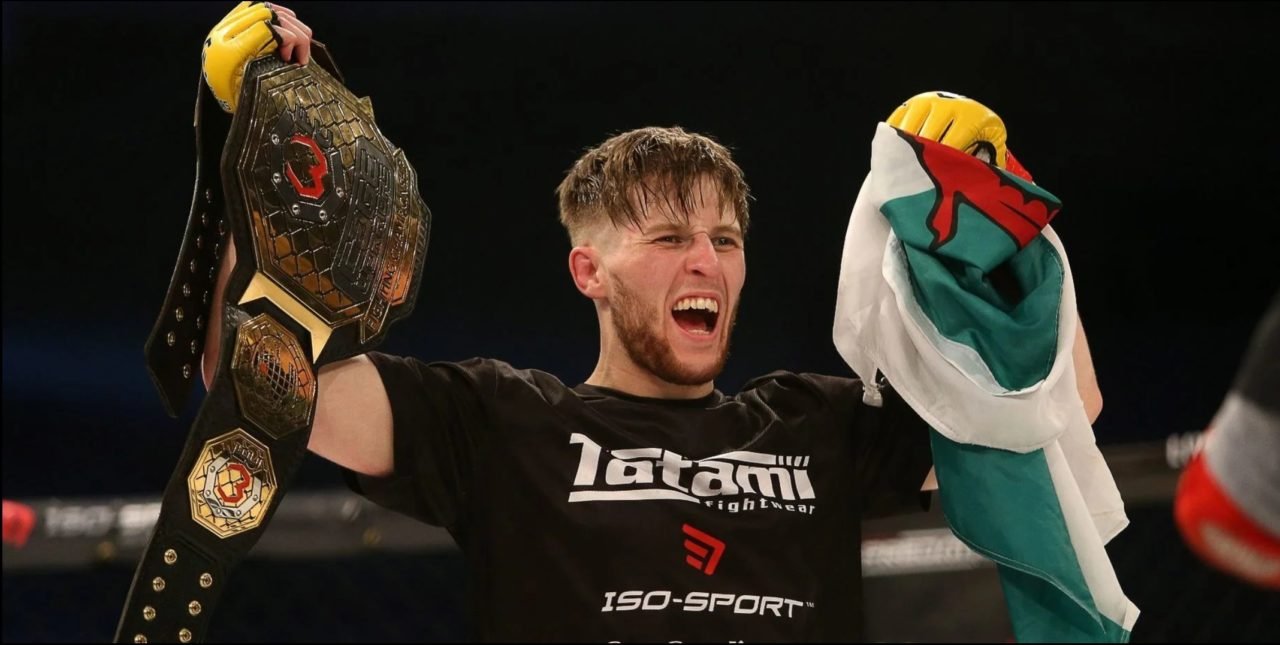

 Subscribe
Subscribe